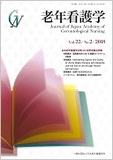Japanese
English
- 販売していません
- Abstract 文献概要
- 参考文献 Reference
1.Abstract
Maintaining the dignity and quality of life for older persons with dementia is a particular challenge as dementia becomes more advanced and people experience more co-morbid physical health care problems. We have worked for many years to ensure that we can make person-centred dementia care practicable within care homes through the development of the VIPS framework. The framework is based on four key elements: Valuing, Individualised, Perspective and Supportive Social Psychology (VIPS).
The VIPS elements can be used as guiding principles for health and social care practitioners to reflect on their interactions with people with dementia and their families. They have also been utilised as the organising principle for 25 indicators of person-centred care. This framework provides a set of practical indicators against which care providers can bench mark their service. This VIPS framework was published in the UK originally in 2007. These ideas in research and practice have continued to develop since this time. It has been taken up by many English speaking care providers and the concepts have been translated into German, Japanese, Spanish, Norwegian and Portuguese. Originally the work focused on care homes but over the years they have increasingly been used by hospital and health staff.
In this paper I describe a number of research and practice projects that have utilised this structure to improve care in hospitals. Prioritising the nursing skills necessary to promote quality of life and dignity for people with advanced dementia does not happen within hospital wards without a great deal of effort on the part of lead nurses and health care practitioners. Without skilled care patients with dementia are often physically restrained or sedated unnecessarily. Recent work has focussed on the skills and competencies of specialist nursing practice and leadership in acute hospital care. By promoting skilled care we can provide care that maintains dignity and quality of life.
1.Abstract
Maintaining the dignity and quality of life for older persons with dementia is a particular challenge as dementia becomes more advanced and people experience more co-morbid physical health care problems. We have worked for many years to ensure that we can make person-centred dementia care practicable within care homes through the development of the VIPS framework. The framework is based on four key elements: Valuing, Individualised, Perspective and Supportive Social Psychology (VIPS).
The VIPS elements can be used as guiding principles for health and social care practitioners to reflect on their interactions with people with dementia and their families. They have also been utilised as the organising principle for 25 indicators of person-centred care. This framework provides a set of practical indicators against which care providers can bench mark their service. This VIPS framework was published in the UK originally in 2007. These ideas in research and practice have continued to develop since this time. It has been taken up by many English speaking care providers and the concepts have been translated into German, Japanese, Spanish, Norwegian and Portuguese. Originally the work focused on care homes but over the years they have increasingly been used by hospital and health staff.
In this paper I describe a number of research and practice projects that have utilised this structure to improve care in hospitals. Prioritising the nursing skills necessary to promote quality of life and dignity for people with advanced dementia does not happen within hospital wards without a great deal of effort on the part of lead nurses and health care practitioners. Without skilled care patients with dementia are often physically restrained or sedated unnecessarily. Recent work has focussed on the skills and competencies of specialist nursing practice and leadership in acute hospital care. By promoting skilled care we can provide care that maintains dignity and quality of life.
Copyright © 2018, Japan Academy of Gerontological Nursing All rights reserved.


